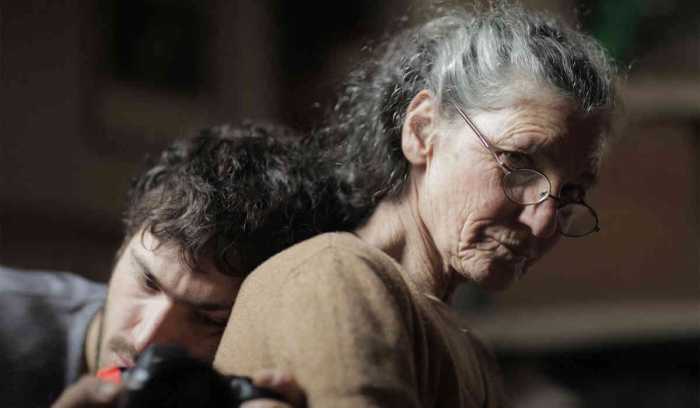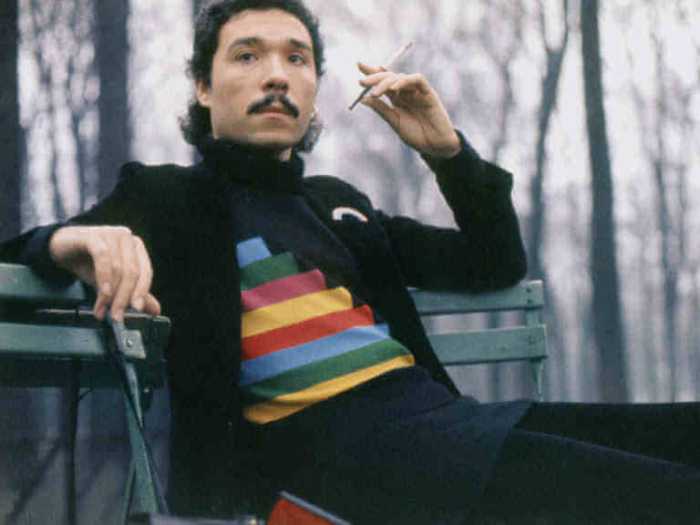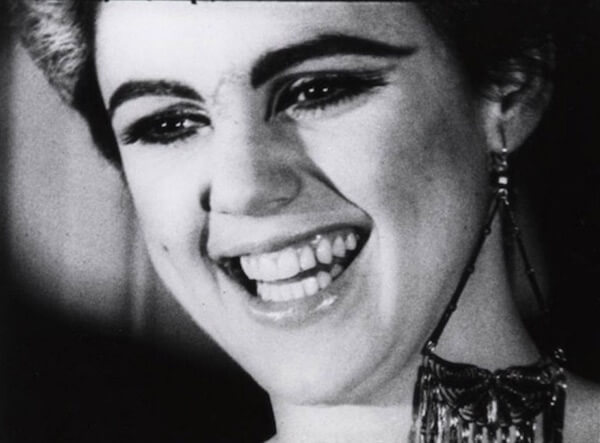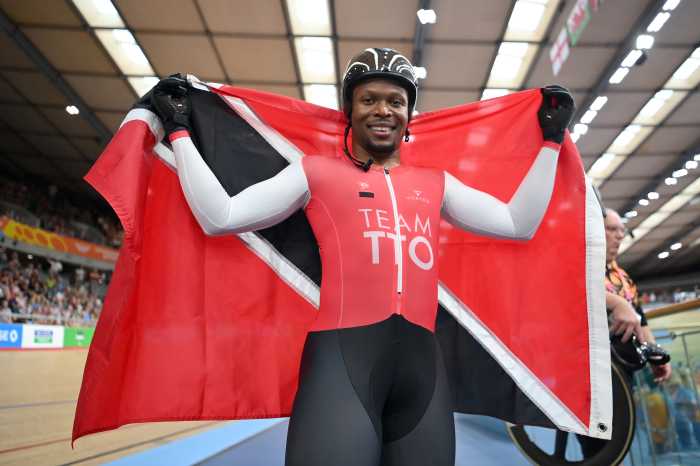Yes, you read that right.
And yes, I’m quite aware of what those words imply.
It’s 2017 and the notion that sexual orientation is anything other than innate is understood in American culture — and widely accepted in much of the “civilized” world as well.
But said acceptance has arrived only in the wake of an intense ideological battle that consumed most of the 20th century, and contines in one form or another to this very day. For while men and women may be “oriented” to persons of their own gender, the “other” one, or both, the society that contains them has perpetually privileged “opposite sex” commingling, ritually attacking anything and anyone that deviates from this alleged “norm.”
It’s in this regard that one chooses to be gay — and is therefore forced to deal with the often-dire results of doing so.
PERSPECTIVE: The View From LA
What signals these dire results is the presumption behind the query “Is it a choice?” For if being gay is a choice, then the conservative doxa can feel free to declare, “You chose wrong. Try again!” However my declaration of choice proceeds from quite a different perspective — one the conservatives heartily disapprove of.
Even a cursory glance at history will show opposition to same-sexuality wasn’t always in play. In different cultures and different eras, same-sex relations were by and large regarded as an understood phenomenon with no particular concern about it. There were, of course, many variations on this. In the Old Testament of the King James version of the Bible, for instance, the Book of Leviticus contains a passage ritually highlighted by right-wing fundamentalists stating that “If a man also lie with mankind, as he lieth with a woman, both of them have committed an abomination: they shall surely be put to death; their blood shall be upon them.” By contrast, in the Book of Samuel, the love of David and Jonathan is hailed as “ passing the love of women.” King James, by the way, was a same-sex enthusiast himself, which is in and of itself scarely execptional across the course of human history. But that doesn’t make the king and his kind gay by modern standards.
In terms of recent history, particular note should be made of Christopher Marlowe’s “Edward II” (1593, memorably filmed by Derek Jarman in 1991), in which a monarch’s love for another man is deemed a threat to the state and consequently brought to a violent end. Marlowe himself has been quoted as declaring, “All they that love not tobacco and boys are fools.” Oh snap! The socio-political upset his “Edward II” dramatizes underscores how same-sex relations could make its practitioners “enemies of the state” — a situation one finds in many regions of the world today (Chechnya being but one example) thanks in many ways to what has happened in the West ever since the Stonewall Riots. Today in places like Chechnya, gay rights are regarded as part and parcel of “Western values” and are opposed as such.
But before getting to Stonewall, we must go back to the close of the 19th century when a Hungarian journalist named Károly Mária Benkert ( also known as Károly Mária von Kertbeny) invented the term “heterosexual’ to denote opposite-sex relations and distingish them from “homosexual” — the word he crafted to label same-sex practitioners. Heterosexuality and homosexuality were then taken up by medical authorities who for obvious profit deemed the former “normal” and the latter a “perversion” and an “illness” — a situation that persisted until 1974 when the American Psychiatric Association declassified it as such, thus “curing” millions of people of this “mental illness” instantaneously.
Prior to this copasetic turn of events — which transpired thanks to the efforts of the gays and lesbians who organized in Stonewall’s wake — precious few of the same-sex oriented declared themselves to be so given the socio-political weaponization of Benkert’s label. One could lose their job, their home, the love of their parents, even their life. No wonder the entire subject of homosexuality was deemed verboten in polite conversation, and so exiled to the realm of gossip.
This disenfranchisement of the sexually non-conforming, of course, was experienced differently based on class. Those with money could live as they pleased, as no one would presume to “ask” or “tell.” A “New York Marriage” of convenience — the option chosen by Cole Porter, Lincoln Kirstein, and Leonard Bernstein, among many — also served to dissuade prying eyes and wagging tongues. In any event, working in the arts world allowed you to luck out, as this bohemian subset by its very nature lived at a remove from the status quo, which few worried that it threatened. Still, even with all those buffers, same-sexuality remained a rare topic for conversation, save in whispers.
As for everyone else, from bus drivers to ribbon clerks to office drones, short-order cooks, and desperate housewives, they took their chances. Small-town America was hostile to any nonconformity. The anonminity of big cities was far preferable. But even there, unless one was financially well-fixed it was advisable to take cover in one way or another. The pressures of doing so were often alleviated by the “gay families” formed on an ad hoc basis for fun and social shelter. But as Mart Crowley’s seminal play “The Boys in the Band” showed, friends could often be “frenemies” in such socio-politically hostile circumstances.
Exceedingly hostile, in fact, considering that it was illegal for any establishment to become known as a place where the same-sex oriented congregated. The threat of police raids on such establishments proved a boon to organized crime, which was happy to run clandestine bars (serving over-priced watered drinks) while paying off the police on the side to keep them open. When payments didn’t arrive on time or were deemed insufficient, the cops desceneded — which is precisely what happened on that tumultuous June night in 1969 at the Stonewall Inn.
But if one took proper precautions, enjoyment could be found, as Frank O’Hara indicated in his poem “Ave Maria,” which describes being picked up at the movies by “a pleasant stranger whose apartment is in the Heaven on Earth Bldg. near the Williamsburg Bridge.”
It’s against this backdrop that my discovery of having what early 1960s softcore pulp novels called “strange twilight urges” did not upset me as it did many others. I lived in O’Hara’s New York, after all, and was destined to work in the arts, attending as I was its High School of Music and Art, a rare refuge that was sexually enightened to the max. At the very first school assembly, I saw a pair of senoir boys curled up in the back of the auditorium making out in full view of literally everyone. I was surprised but in no way displeased. It was for me simply the “coming attactions.” My high school years from 1961-1964 were full of flirtations, heavy petting, and sometimes more.
One summer in those years my parents elected to have me take an acting course at New York’s American Academy of Dramatic Arts. I had fun, even while discovering that acting wasn’t for me. I also discovered my self-reliance, when another student took me aside and informed me in hushed, slightly threatening tones, “You have faggot tendencies.” I wasn’t upset so much as startled by his desire to inform me of the obvious. It was my first encounter with what I would later learn was a closet queen — a man so discombobulated by his strange twilight urges that he not only hid them but struck out at those who didn’t.
I soon migrated to the world of avant-garde film, filled with open-and-above-board same-sexers like Gregory Markopoulos, Kenneth Anger, and, especially, Andy Warhol. I interviewed Andy extensively at his legendary Silver Factory in its early ‘60s prime, and also hung out there, where my experiences proved central to my discovery of what was called the Gay World.
As writer and incurable diseuse Fran Lebowitz has noted of that era, “In New York, being gay was not enough. Here, there was a hierarchy that had to do with intelligence or with a certain kind of cultivation. And partially this was caused by the invisibility of homosexuality in the culture. There was just no awareness of it. It just didn’t exist, but it also operated kind of like a secret society. And so part of the older men taking younger men to the ballet, part of that was — if you want to call it — mentorship and part of it was just seduction.”
Part of the seduction had to do with the notion that it “didn’t exist” — which of course it did, though the socially-imposed silence enveloping it served as a kind of protective shield. It allowed Andy to be as “unmasculine” as hell and make films like “Blow Job,” “Horse,” and “My Hustler” without ever being seriously interrogated about it.
But sex was not all that mattered in this context. Behind this silent shield one also learned about what really mattered: Maria Callas, Jean Genet, Allen Ginsberg, Noël Coward, Stephen Sondheim, Elaine Stritch, the New York City Ballet under George Balanchine, and the Broadway stage under Jerome Robbins.
Stonewall signaled that “silence” had run its course. Many redecorated their closets, but others were bursting out of them, quite dramatically. It was because of those souls that I soon found myself in the ranks of the Gay Activists Alliance (GAA), fighting for a world where one could be openly gay as a matter of course.
Today, the notion that so many were fearful of coming out seems quaint. Many were reluctant not only to come out to the world at large but even to themselves. Some claimed they were merely “going through a phase” or were “really bisexual” — though that wasn’t at all the case. As a result, ill-advised marriages to persons of the opposite sex continued to be made. But then came AIDS, and that changed everything.
Fran Lebowitz again: “ After AIDS, I think that [homosexual] people were afraid of a kind of official response to AIDS, like they would be arrested, or put in jail, all these kind of things, which are not unlikely things, by the way, and so they made up a lie. ‘We’re just like you. We are just like you, we’re exactly like you.’ But of course, they were not exactly like straight people. They were nothing like straight people.”
And that, of course, is our greatest asset. But realizing that fact and doing something about it must be made fresh with every generation, even in the face of those trying their best to be “imitation heterosexuals.” We’ve come a long way from the likes of Katharine Hepburn, who worked tirelessly to turn her on-screen romance with Spencer Tracy into an off-screen reality the better to cover up her lesbianism, to out (from the start) lesbians like Kate McKinnon and the (finally) out and proud Jodie Foster. But the fight never seems to end — the ever-so-coyly closeted Kevin Spacey being a perfect example.
I was reminded of this by a photograph recently taken of Gauthier Destenay, the husband of Luxembourg’s Prime Minister Xavier Bettel, with the spouses of other world leaders — all of whom were female. Donald Trump’s White House initially didn’t wish to make note of Destenay’s presence in captioning the photo. But they eventually capitulated, thanks to media insistence. This is a far from my GAA days spent trying to get the media to take notice of us in any way, shape, or form.
That media notice now goes to the point of chronicling the antics of alt-right homocon Milo Yiannopoulos, whose seething hatred of women, transgender people, and anyone on the political left places him in the position formally reserved not just for Roy Cohn, but also carnival geeks who chew the heads off of live chickens. Clearly Milo has made his choice to turn self-loathing into a “lifestyle.”
My choice to be gay was made in high school. And it was strengthened thanks to my discovery of Frank O’Hara, who inadvertently outlines it in a poem called “At The Old Place” about a clandestine gay dance club he went to in the 1950s:
Down the dark stairs drifts the steaming cha- cha-cha. Through the urine and smoke we charge to the floor. Wrapped in Ashes’ arms I glide.
(It’s heaven!) Button lindys with me. (It’s heaven!) Joe’s two-steps, too, are incredible, and then a fast rhumba with Alvin, like skipping on toothpicks. And the interminable intermissions,
we have them. Jack, Earl and Someone drift guiltily in. “I knew they were gay the minute I laid eyes on them!” screams John. How ashamed they are of us! we hope. “
And as Kevin Spacey shows, some are still really and truly ashamed. And that’s a shame.




































